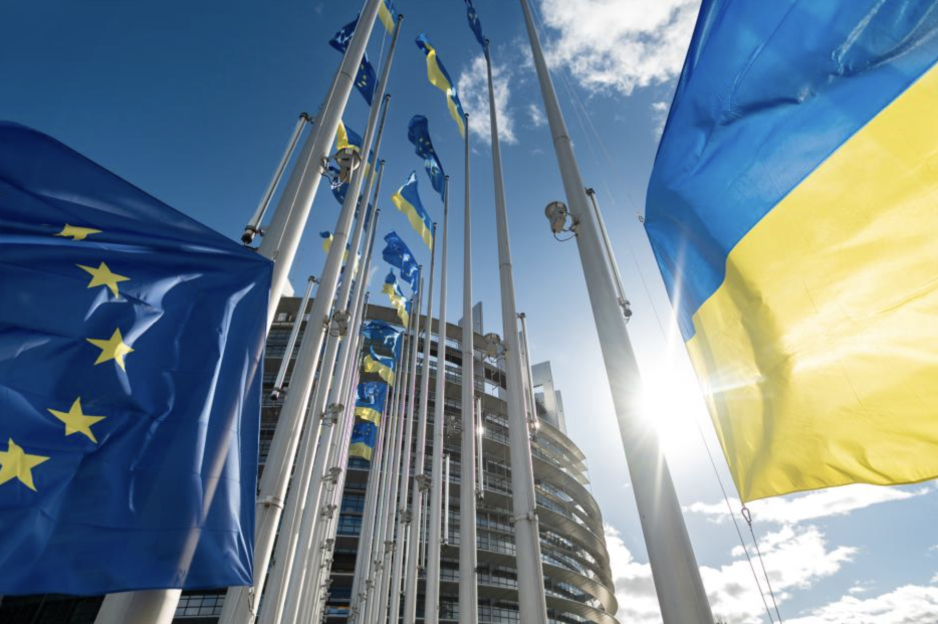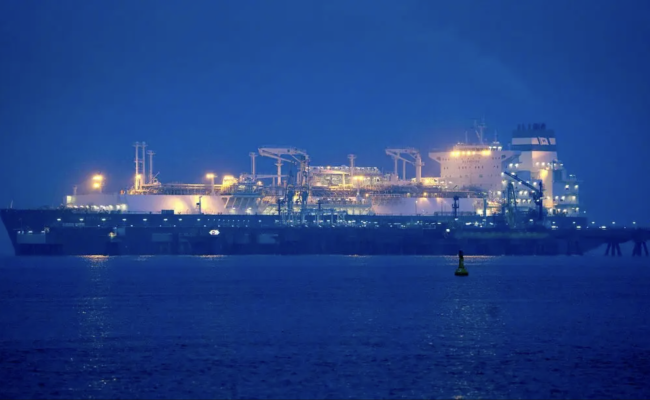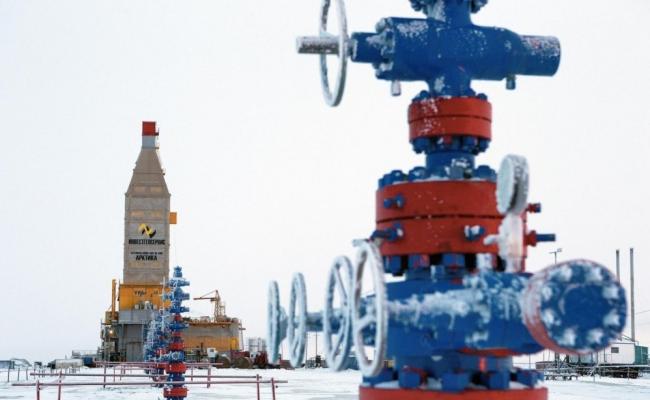EU Fails to Act on Russian LNG As Some Member States Discuss Restart of Gas Imports After War

EU and Ukraine flags in Brussels 2024. (Source: Courtesy of and © European Union, 2024 - EP)
Russian liquefied natural gas receives a pass in the latest round of EU sanctions. The European Commission will not be including new significant measures against the supercooled gas from Russia. The bloc imported record amounts from Russia in 2024.
Three years into the Ukraine War efforts to phase out purchases of Russian liquefied natural gas (LNG) have faltered in Brussels. The European Commissions will not include a proposal to ban liquefied natural gas as part of the upcoming 16th sanctions package against Russia, reports say.
The development could be the beginning of a larger momentum shift for Russian gas; the Commission also pushed back the roadmap for the phase-out of all Russian fuels by a month with some member states also discussing a possible return of Russian gas in a post-war environment.
The developments were first reported by Reuters and the Financial Times.
A senior executive of Russia’s largest LNG producer, Novatek, traveled to Brussels last week in an attempt to discuss the country’s energy policy with a number of think tanks and policy institutes, none of which accepted the invitation.
It was not clear if Novatek’s Denis Solovyov met with any EU or member state officials.
Gas prices across the EU remain significantly higher
The decision of the Commission to not touch Russian LNG is a sign of persistent divisions among the 27 member states. Ten countries, including the Nordic and Baltic states – none of which currently imports Russian LNG – called for a ban last month.
Price concerns return to forefront
Concerns over supply security and price stability among those member states relying more heavily on Russian LNG – primarily France, Spain, and Belgium – have come back into focus this winter, hampering progress on the issue.
Gas prices across the EU remain significantly higher compared to most parts of the world.
Cold temperatures have resulted in a larger drawdown of reserves compared to the previous two winters. Recent U.S. sanctions targeting two smaller Russian LNG plants, Portovaya and Vysotsk, also rattled markets and officials, with price increases in the immediate aftermath.
Transshipment ban
The impact of the final round of sanctions by the Biden Administration before leaving office may have inadvertently dampened interest to further destabilize gas supplies with the EU’s own measures.
Also read (The text continues)
Discussions in Brussels also factored in the uncertainty over the impact of the EU’s upcoming transshipment ban. Starting at the end of March, Russian LNG can no longer pass through the continent’s terminals for the purpose of re-exports.
The measure was meant to curtail Russia’s ability to ship its super chilled gas to far-off places using EU ports. However, without import restrictions any deliveries previously bound for re-export may simply remain and be sold into the EU market.
Increased spot sale
The latest data suggests this may in fact be happening come March.
Spot sales of Russian LNG have continuously increased toward 2025, rising from 23 percent in 2023 to 33 percent in 2024.
Especially if spot prices remain high the EU may end up importing more Russian LNG after the transshipment ban than before, gas industry analysts previously warned.




